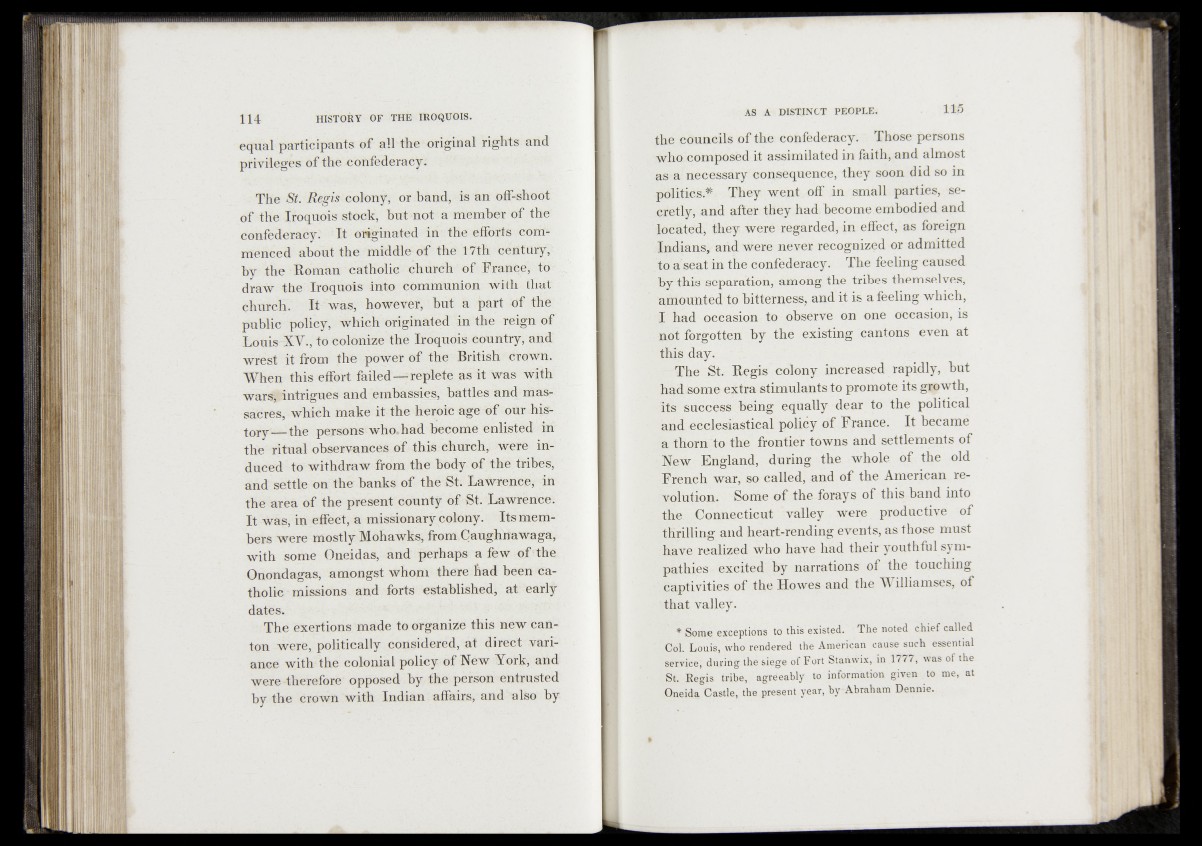
equal participants of all the Original rights and
privileges of the confederacy:
The St. Regis co\onf> or band, is an off-shoot
of the Iroquois stook, hut not a member
confederacy. It originated in the effotts com>
rneneed about the middle- of the 17th century,'
by the Homan catholic^ Ohureh of France? teh
draw the Iroquois -into communion with tliat
church. It was, however, but a part of the
public policy, which originated in the reign of
Louis "XV., to colonize the Iroquois country, and
wrest it from the power of the- British crown.
When this effort failed—" replète as it was with
warspintrigues and embassies, battles and mas-
sabres, which make it the heroic age of our history—
the persons who.had become enlisted in
the ritual ohservancebyof this church, were induced
to withdraw from the body of the tribes,
and settle on the banks of the .St; Lawrence, in
the area of the present county of Bi Lawrence?:
It was, in effect, a missionary colony. Its members
were mostly Mohawks, from-Caughhawaga,
with some Oneidas, and perhaps a few ;ofethe
Onondagas, amongst whom there bad been catholic
missions and forts established, at early1
datés.
The exertions made to organize this new Canton
were, politically considered, at direct variance
with the colonial policy of New York, and
were -therefore opposed by the person entrusted
by the crown with Indian affairs, and also by
the councils of the confederacy. Those persons
who/Composed it assimilated in faith, and almost
as a necessary consequence, they soon did so in
polities.* They went off in small parties, secretly,
and after they had become embodied and
located, they were regarded, in effect, as foreign
Indians* arid were never recognized or admitted
to a seat in the Confederacy. The feeling caused
by this separation, among the tribes themselves,
amounted to bitterness, and it is a feeling which,
I had occasion to observe on one occasion, is
not forgotten by the existing cantons even at
this day. ,
The St Regis colony increased rapidly, hut
had some extra stimulants to promote its growth,
its success being equally dear to the political
and ecclesiastical policy of France. It became
a thorn to the frontier towns and settlements of
1 l^ew/ England, during the whole of the old
French war, so called, and of the American revolution.
Some of the forays of this band into
the. Connecticut valley were productive of
thrilling and heart-rending events, as those must
hjave Realized who have had their youthful sympathies
excited by narrations of the touching
captivities of the Howes and the Williamses, of
that valley.
* Some exceptions to this existed. The noted chief called
Col. Louis, who rendered the American cause such essential
service, daring the siege of Fort Stahwix, in 1777, was of the
St. Regis tribe, agreeably to information given , to me, at
Oneida Castle, the present year, by-Abraham Dennie.